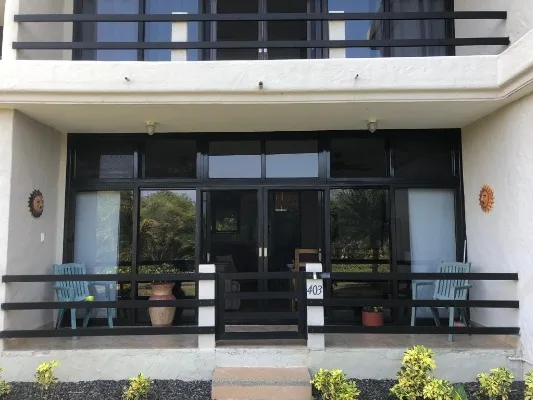STATE OF THE NATIONA lightning rod for international criticism, Rafael Correa is making life better for Ecuadorians … and expats too
Editor's note: The following is from the
forthcoming book, Expats in Ecuador: Life in Cuenca, by David Morrill and Deke Castleman.
Although Rafael Correa has been a controversial figure in his six years as president of Ecuador, most of the country’s English-speaking residents will tell you that their lives are better because of him.
Almost certain to be re-elected to a second full term in the February elections, Correa has pledged to continue the extensive agenda of public welfare and infrastructure projects already under way. These include expansion and reconstruction of the coun try’s highway and bridge system, construction of new hospitals and hiring more doctors to support the country’s Social Security health care system, and a top-to-bottom overhaul of public education. In all, spending on public projects has increased 300% since Correa was first elected.
try’s highway and bridge system, construction of new hospitals and hiring more doctors to support the country’s Social Security health care system, and a top-to-bottom overhaul of public education. In all, spending on public projects has increased 300% since Correa was first elected.
Frequently criticized for his left-leaning politics, opposition to free trade agreements with the U.S. and the EU, and, more recently, his grant of asylum to WikiLeaks founder Julian Assange, Correa says he is working to reverse years of neglect of the country’s public services and infrastructure.
He frequently invokes Alexander von Humboldt, the early 19th-century Prussian explorer and naturalist who described Ecuador as a “beggar sitting on a bag of gold.” Ecuador must use its resources, he insists, to improve the lives of its citizens. With his background in economics, Correa knows that because those resources, especially oil and gas, are finite, the country needs to build a future based on an educated, healthy and prosperous citizenry.
The government’s public projects, in fact, are funded primarily by oil money. After Correa restructured contracts with oil producers in 2007 and 2008, he dedicated billions of dollars to public works. Other public funds are the result of increased revenues generated by higher levels of tax collection. Although his critics say he is spending too much, Correa points to a healthy national balance sheet that would be the envy of most European countries, as well as the U.S.
Among the public projects currently under development or on the drawing board are:
• Cuenca’s new light-rail system that begins construction in February. The European-designed system will transport 120,000 passengers a day when it’s completed in early 2015.
• A new national research complex, dubbed the “City of Knowledge,” under construction east of Quito. Based on the North Carolina Research Triangle concept, Correa expects the center to attract scientists and researchers from around the world.
• A three-fold expansion of the nation’s Social Security health care system, including the addition of new facilities, equipment and doctors. Expats under the age of 60, by the way, have the option to buy in to the Social Security insurance program for less than $70 per month.
• The reconstruction of the nation’s railway system that was abandoned by previous governments following El Niño-produced landslides that destroyed tracks and bridges 15 years ago. The first leg of the rebuilt system opened in December between Ambato and Riobamba and tracks are currently being extended to Quito.
• A new national education university, just north of Cuenca, designed to provide world-class training to school administrators, policy makers and teachers, from primary school through the university graduate levels. The government has begun to recruit educators from other countries and announced in October the hiring of more than 100 Ph.D.-level professors from Spain.
• In addition to the headline-catching projects, increased public spending has shown results in other areas as well: In 2012, Ecuador achieved the lowest poverty and illiteracy rates among all nations of South America’s Andean region; national and local police departments have added thousands of new officers; and hundreds of top Ecuadorian students are now receiving a free education, at government expense, at the world’s top universities, including Harvard, Oxford, Stanford, London School of Economics and the Sorbonne.
Major challenges confront Rafael Correa and he will no doubt continue to be a lightning rod for criticism, both within Ecuador and internationally. He faces a nasty fight with the country’s education unions, which are opposed to new teacher compentency tests and higher classroom standards. Many of his oil- and mineral-extraction policies have angered indigenous groups, although he says he will adhere to rigorous environmental controls. Business groups complain about higher duties on imports and new government reporting requirements. In addition, his over-sized ego and big mouth continue to get him in trouble with the international media.
There is no denying that Correa's political ambitions have been greatly assisted by high oil prices and, to a smaller extent, the return of thousands of Ecuadorians who have become prosperous working overseas.
His plans for Ecuador, however, are borne of an international perspective reflecting his education and years of living Europe and the U.S. (he earned his undergraduate degrees in Belgium and his Ph.D. from the University of Illinois).
Correa says his goal is to position Ecuador among the first rank of Latin American countries by the time he leaves office. Based on early results, he seems well on his way to achieving it. And Ecuador’s growing number of expats can only appreciate his successes.
Credit: Reposted from www.LiveandInvestOverseas.com; Photo caption: A new highway north of Quito.





















